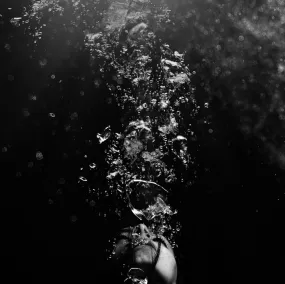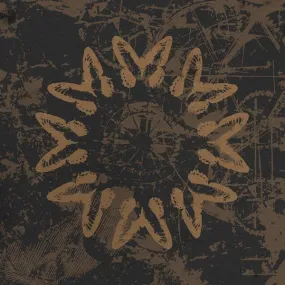Jeff McIlwain's work as Lusine has been called many things over the years, many of them contradictory—melodic, jagged, groundbreaking, artful, serene, aggressive, danceable, drifting—but there's one aspect of Lusine that frequently gets overlooked in the tsunami of critical ink, and that's the music's sheer consistency. Plain and simple, McIlwain hasn't released a bad track in his career recording as Lusine, and this is never more apparent then on Lucky Numbers: The Ghostly International EPs, a career-spanning retrospective of McIlwain's early releases on Ghostly International (the catalog numbers of which all ended in the lucky numeral "7", thus the name) coupled with a few recent remixes and previously unreleased tracks.
In many ways, Lusine is a prototypical Ghostly artist, deftly straddling the lines between Avant-Pop and SMM, dance music and ambient music, popular and experimental. Lucky Numbers surveys the faces of Lusine, including: 2003's Push EP, McIlwain's inaugural release on Ghostly containing the producer's trademark whip-smart programming and elegant sound design; 2005's Inside/Out EP, the follow-up to Lusine's full-length debut Serial Hodgepodge and a showcase for his more dancefloor-friendly side; and 2006's Emerald EP, an unconventional ode to McIlwain's hometown of Seattle featuring some of the producer's steeliest, most pop-oriented work to date.
Lucky Numbers' remaining tracks pull from Lusine's equally vital past and present. McIlwain remixes himself in alternate versions of the sublime singles from 2009's A Certain Distance, "Twilight" and "Two Dots"—both featuring Vilja Larjosto's pristine vocals—and in an alternate take of haunted-house creeper "Crowded Room"; and unreleased tracks "John Doe" and "Rubberbands (Dirty Mix)" round out the collection. Lusine's work may be hard to pigeonhole stylistically, but as a work of genre-defying art and floor-filling ingenuity, Lucky Numbers couldn't be easier on the ears.















